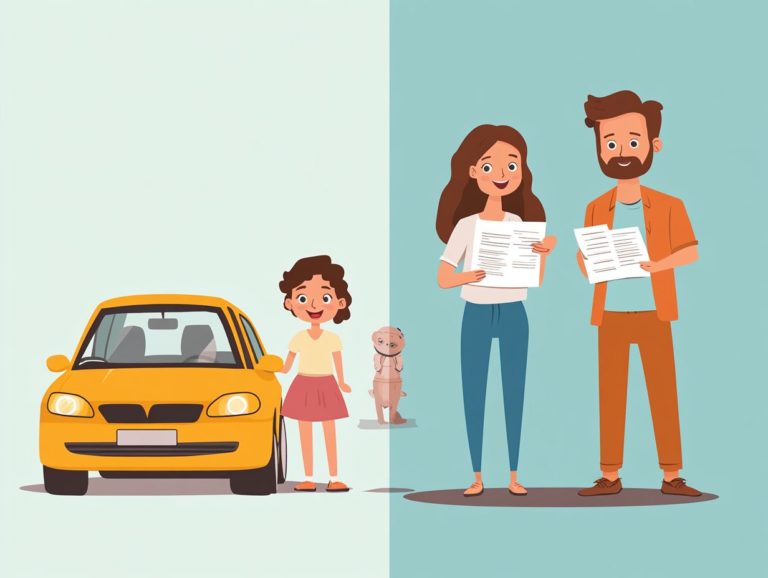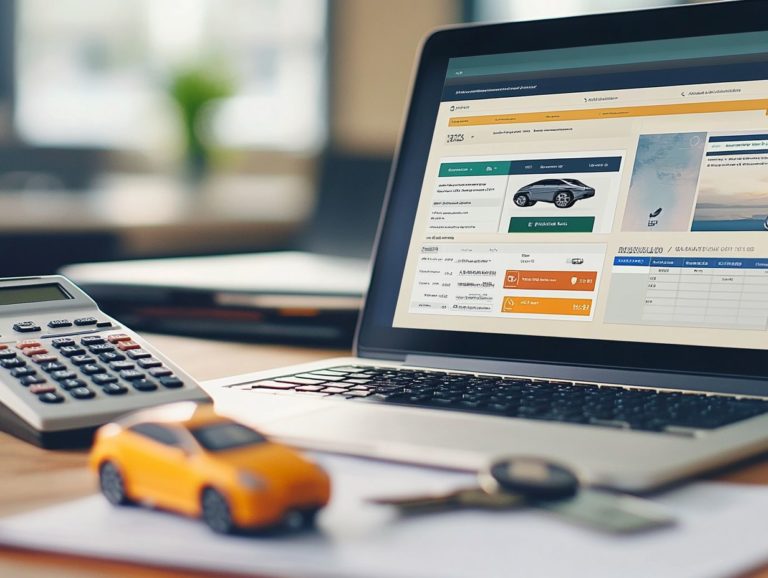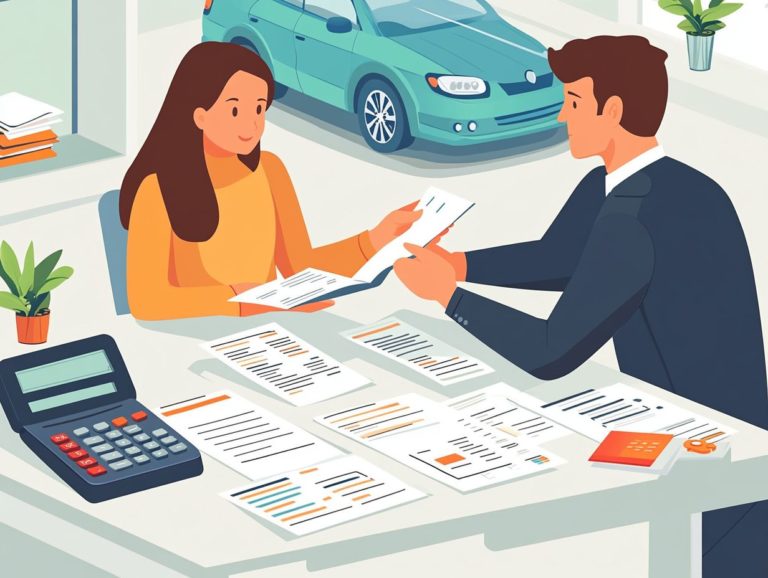The Financial Impact of Vehicle Ownership
Owning a vehicle provides a sense of convenience and freedom. Yet, it also entails a variety of costs that many new car owners often overlook.
From the initial purchase price to ongoing maintenance and insurance, the financial implications can accumulate rapidly.
Let s explore the key factors that determine the real cost of owning a vehicle!
This article examines everything from depreciation and financing options to hidden expenses such as taxes and registration fees, empowering you to make informed decisions about your automotive investment.
Contents
Key Takeaways:
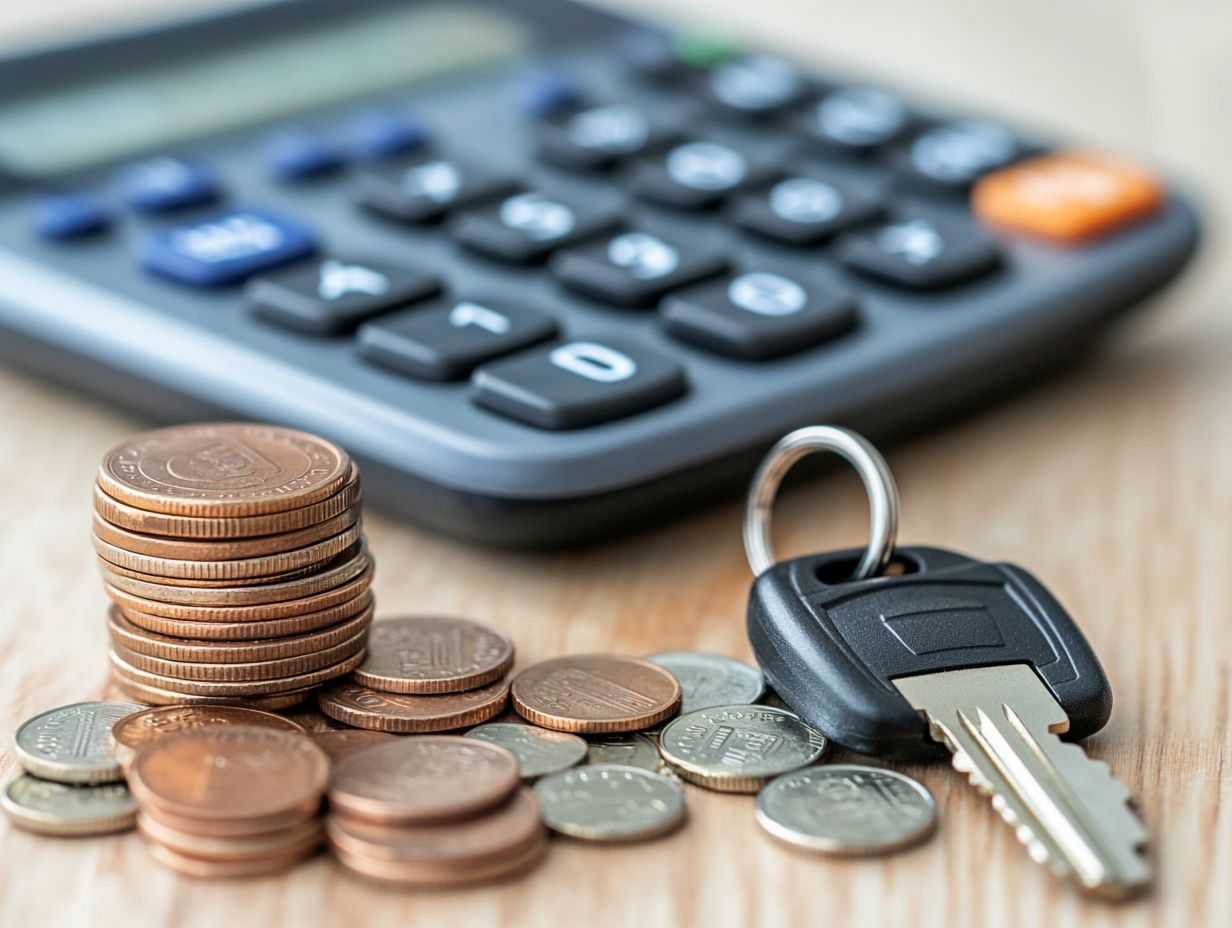
The Cost of Owning a Vehicle
Owning a vehicle can be a major concern for drivers in the U.S. Many factors contribute to the financial burden of car ownership.
From average auto loan payments and insurance premiums to escalating maintenance costs and fuel expenses, it s essential for you as a prospective or current vehicle owner to grasp these elements.
Doing so will enable you to make informed financial decisions that align with your budget and lifestyle.
Factors that Affect Ownership Costs
Many factors influence car ownership costs. These factors can impact your family’s financial well-being.
Insurance premiums can range from $800 to $2,000, while maintenance expenses average around $1,200 annually. These costs, along with fluctuating fuel prices, can heavily impact your budget.
Economic challenges, such as unpredictable job markets and rising interest rates on loans, only amplify this financial strain.
Recent surveys reveal that nearly 60% of drivers have reevaluated their vehicle choices due to these cumulative costs. This shows the urgent need for more affordable vehicle options today!
Understanding Depreciation
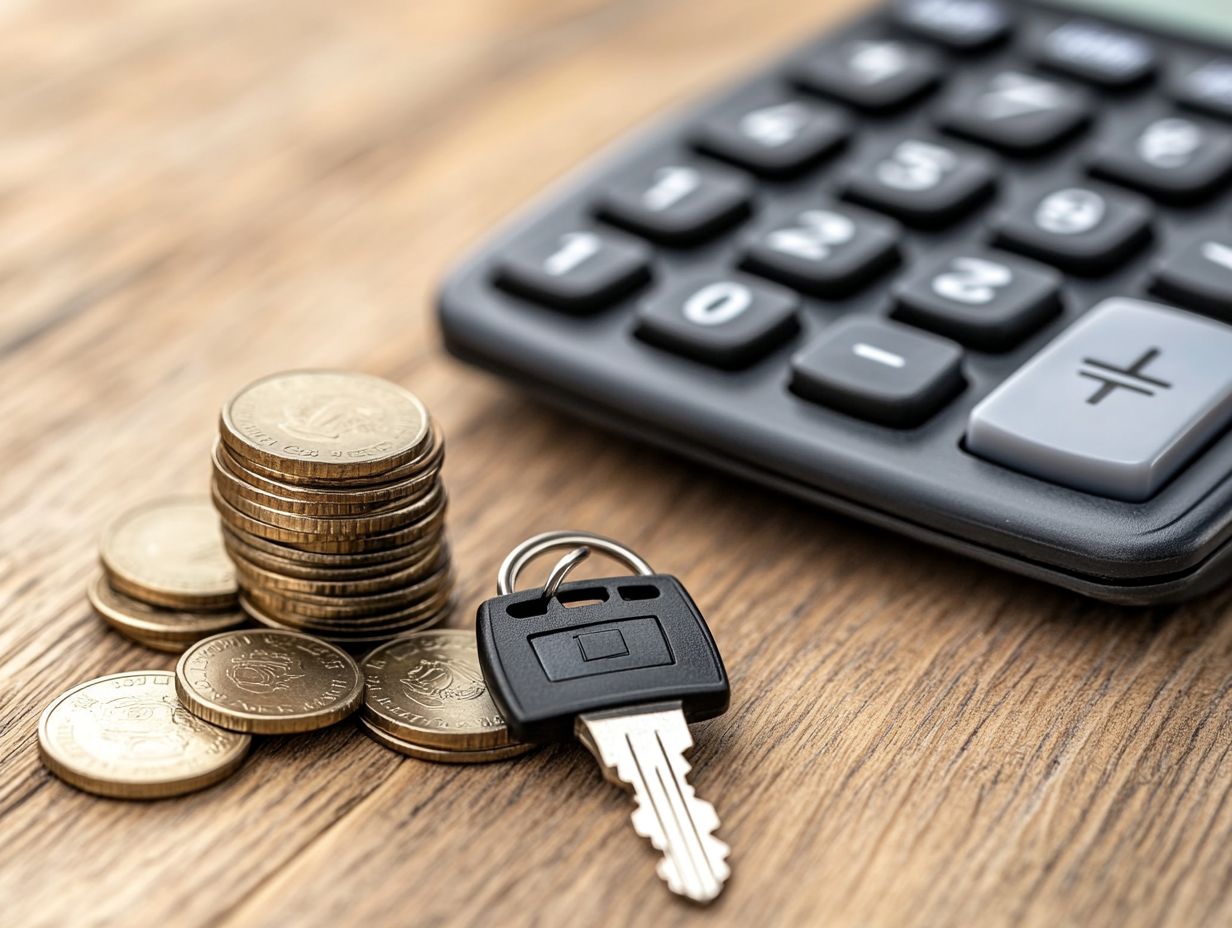
Understanding depreciation is crucial for you as a vehicle owner, as it directly affects your car’s value and your broader financial decisions related to vehicle ownership.
As your vehicle ages, several factors come into play such as the make and model particularly with popular choices like hybrid and electric vehicles from brands like Toyota, Kia, and GM.
These elements significantly influence depreciation rates, shaping your vehicle’s resale value and your financial planning in the automotive landscape.
How it Affects the Value of Your Vehicle
Depreciation plays a crucial role in determining your vehicle’s value over time, impacting both your immediate financial decisions and long-term ownership costs.
This decline in value isn’t merely about age; various factors including maintenance history, repair expenses, and the overall condition of the vehicle are all integral to how much your vehicle will depreciate.
For example, a well-maintained vehicle accompanied by a solid service record will often retain its value much better than one that has undergone frequent repairs and neglect.
By grasping these dynamics, you can make more informed financial decisions, whether you’re considering selling your vehicle for a potential profit or trading it in for a new model.
These factors can significantly influence the final sale price, making awareness essential for maximizing your investment.
Financing a Vehicle
Financing a vehicle stands as one of the most significant financial decisions you will encounter, especially when navigating budget constraints and fluctuating monthly incomes.
With choices such as auto loans and car leasing at your disposal, grasping the intricacies of financing terms and conditions can enable you to overcome economic challenges and enhance your overall financial well-being.
Understanding these costs can help you make better financial decisions. Take a moment to evaluate your vehicle expenses today!
Options for Purchasing a Vehicle

Thinking about buying a vehicle? You have many options! These include auto loans and car leasing, each with its own advantages and financial implications tailored to suit different needs.
It s essential to evaluate which method aligns best with your personal finances. With auto loans, you typically borrow money to buy the car outright. This grants you complete control over the vehicle once the loan is repaid. Although this option may come with higher monthly payments, it ultimately leads to ownership and offers long-term value.
In contrast, car leasing allows you to enjoy a vehicle for a specified period, often at lower monthly costs. However, keep in mind that you need to return the car at the end of the lease term. Understanding how these options impact your budget is crucial, as they can significantly influence your monthly expenditures and long-term financial goals.
Maintenance and Repair Costs
Don t forget, maintenance and repair costs can add up fast! They are a key part of owning a vehicle and can lead to considerable financial strain.
These expenses can fluctuate significantly, influenced by factors such as the make and model of your vehicle think popular brands like Nissan, BMW, and Audi. You may need regular servicing or face unexpected repairs, impacting your budget.
Factors that Influence Maintenance and Repair Expenses
Several factors influence your maintenance and repair expenses, adding to the financial burden you navigate as a vehicle owner.
Vehicle age stands out as a primary contributor. Older models typically require more frequent repairs and replacement parts, driving up costs.
Brand reliability also plays a crucial role. Consumer data reveals that premium brands like Lexus often incur significantly lower maintenance expenses compared to their luxury competitors.
Shifting market trends can affect your repair costs too. For example, the increasing demand for electric vehicles often leads to higher service costs due to specialized parts and labor.
On average, you might spend between $500 and $1,200 annually on maintenance, underscoring the financial strain these factors can impose on your budget.
Insurance Expenses for Vehicle Owners
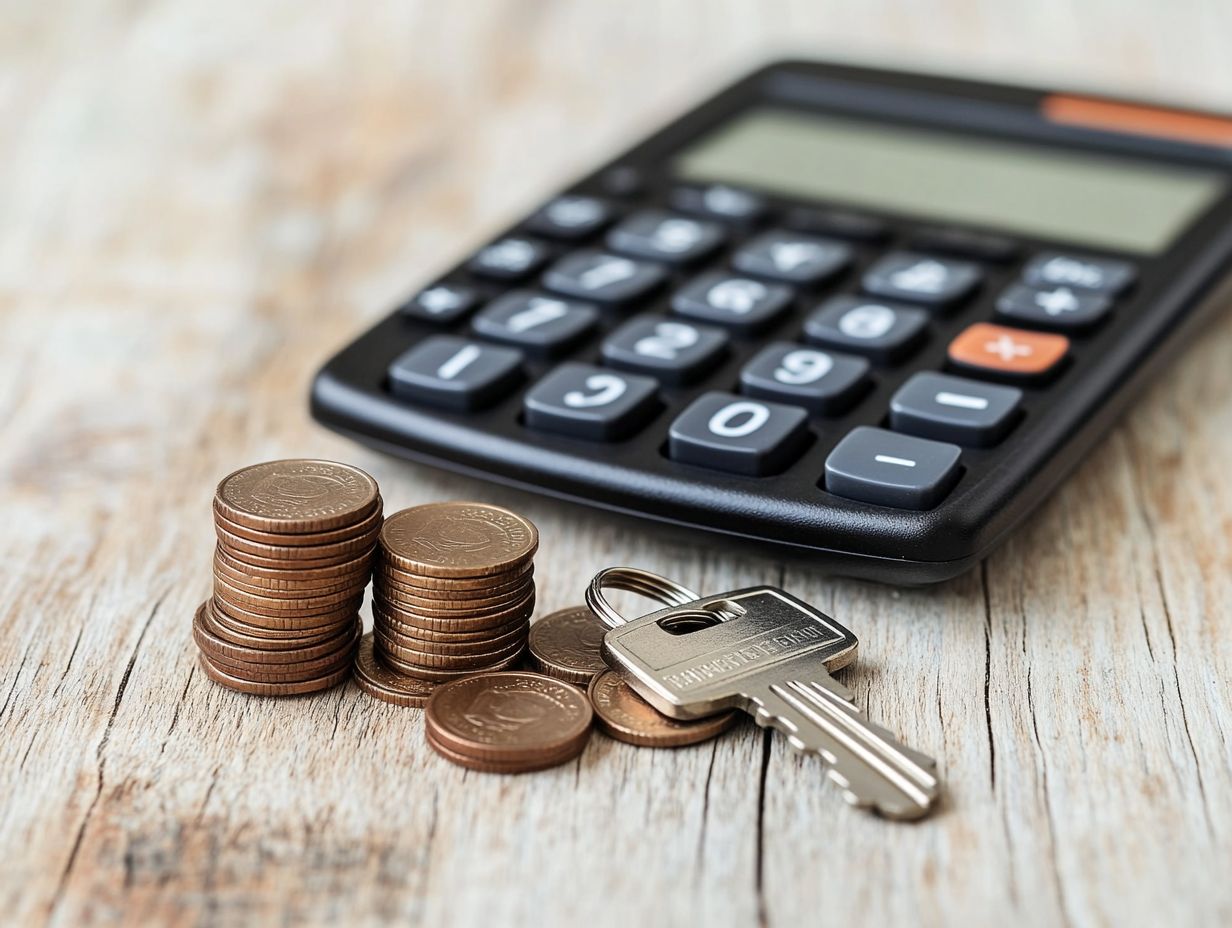
Insurance expenses constitute a considerable part of the overall costs tied to vehicle ownership, often forcing you to navigate tough financial decisions.
Insurance premiums fluctuate based on factors like the type of vehicle, your driving history, and your location. Grasping these expenses is essential for effective budgeting, especially in the face of economic challenges.
Types of Insurance Coverage and Costs
Vehicle owners have several insurance options, each impacting your budget differently. Understanding these options is essential for effectively managing your expenses.
You ll encounter common types like:
- Liability coverage, which safeguards you against damages incurred to others during an accident.
- Collision coverage, which takes care of damages to your own vehicle.
- Comprehensive insurance, which protects you against non-collision incidents, such as theft or natural disasters.
The premiums for these policies can fluctuate significantly based on factors like your age, driving history, and the type of vehicle you own. It s crucial to assess your unique needs and budget carefully to select the right coverage, ensuring you’re adequately protected without overspending.
Other Hidden Costs of Vehicle Ownership
Besides the evident costs of vehicle ownership, you ll likely encounter a variety of hidden expenses that can significantly impact your finances.
These concealed costs ranging from taxes and registration fees to various miscellaneous charges can add up quickly. It’s crucial not to overlook these factors when evaluating your overall car-related expenses, as they can quietly erode your budget.
Dive into your options today and make an informed choice!
Understanding Vehicle Ownership Costs: Taxes, Registration, and Fees
Owning a vehicle is thrilling, but it comes with important financial responsibilities! Taxes, registration, and fees are critical factors for you as a vehicle owner, greatly affecting how much you spend on your vehicle.
Understanding the various types of taxes like sales tax, property tax, and fuel taxes along with state-specific registration fees is essential. You should also consider annual inspection costs, which ensure your vehicle meets safety and emission standards, as well as potential toll fees that may arise from frequent travel.
Knowing these costs helps you budget and make smart financial choices. For instance, grasping the full scope of costs can influence your decisions on which vehicle to purchase or whether leasing might be a better option, ultimately aligning your financial goals with your vehicular needs.
Frequently Asked Questions
What are the main costs associated with vehicle ownership?
The main costs associated with vehicle ownership include:
- Initial purchase price of the vehicle
- Ongoing maintenance and repairs
- Fuel expenses
- Insurance premiums
- Registration fees
How does the type of vehicle impact the financial cost of ownership?
The type of vehicle can have a significant impact on the financial cost of ownership. Generally, luxury or high-end vehicles will have a higher purchase price, insurance premiums, and maintenance costs compared to more affordable or economy vehicles.
What is the average annual cost of owning a vehicle?
According to a study by AAA, the average annual cost of owning a vehicle in the United States is $9,282. This includes costs such as depreciation, fuel, maintenance, insurance, and registration fees.
What are some common ways to save money on vehicle ownership?
Some ways to save money on vehicle ownership include:
- Purchasing a used vehicle instead of a new one
- Comparing insurance quotes from different providers
- Regularly maintaining and servicing the vehicle
- Practicing fuel-efficient driving habits
How can a vehicle impact my overall financial health?
Vehicle ownership can significantly impact your overall financial health. The costs associated with owning a vehicle can take up a large portion of your monthly budget, and unexpected repairs or accidents can create financial strain. To better manage these expenses, it’s important to explore understanding the total cost of car ownership and to budget accordingly.
What are some alternatives to owning a vehicle?
Some alternatives to owning a vehicle include using public transportation, car-sharing services, or biking and walking. These options can save you money on the initial purchase and ongoing costs of a vehicle but may not be feasible for everyone depending on their location and transportation needs.
Act now to explore savings on your vehicle costs!



